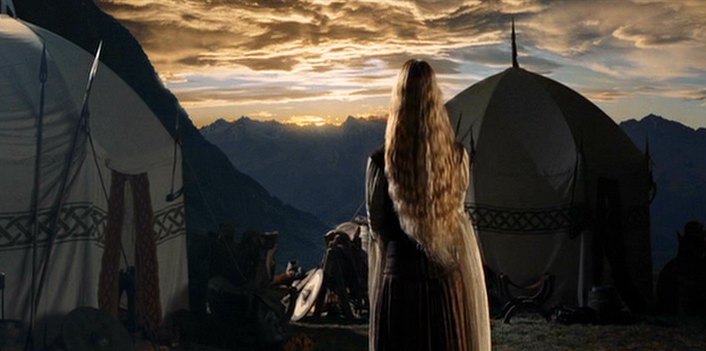The reason I almost never include poetry in this blog is simple. Very, very rarely a poem reaches the innermost of my soul. The first poem that reached me was one by Luis de Góngora, which I read in the textbook of Miss Anaya (photo) in my middle teens.
Góngora was a Baroque poet of the golden age of Spain. He, and his contemporary Francisco de Quevedo (about whom I have to quote something in the future), are considered the most prominent Spanish poets of all time. Góngora flourished by the end of the 16th and the beginning of the 17th centuries, when the Spanish language reached its maximum degree of perfection. Anaya, my former school teacher, tells us in Literatura Española that later in his life Góngora became a priest and lived in a chaplaincy of honor in Madrid in the palace of King Philip III.
Góngora composed his Sonnet LCXVI when he was twenty-one years old:
Mientras por competir con tu cabello
Oro bruñido el sol relumbra en vano,
Mientras con menosprecio en medio el llano
Mira tu blanca frente al lilio bello;
Mientras a cada labio, por cogello,
Siguen más ojos que al clavel temprano,
Y mientras triunfa con desdén lozano
Del luciente cristal tu gentil cuello,
Goza cuello, cabello, labio y frente,
Antes que lo que fue en tu edad dorada
Oro, lilio, clavel, cristal luciente,
No sólo en plata o vïola troncada
Se vuelva, más tú y ello juntamente
En tierra, en humo, en polvo, en sombra, en nada.
Following is Edward Churton’s translation. Góngora’s urgent appeal to a young blonde nymph to enjoy her youth before time destroys her made a huge impression in the lad I was:
While to contend in brightness with thy hair
Sunlight on burnished gold may strive in vain,
While thy proud forehead’s whiteness may disdain
The lilies of the field, which bloom less fair,
While each red lip at once more eyes will snare
Than the perfumed carnation bud new born,
And while thy graceful neck with queenly scorn
Outshines bright crystal on the morning air:
Enjoy thy hour, neck, ringlets, lips, and brow;
Before the glories of this age of gold:
Earth’s precious ore, sweet flowers, and crystal bright
Turn pale and dim; and Time with fingers cold
Rifle the bud and bloom; and they, and thou
Become but ash, smoke, shadow, dust and night.

